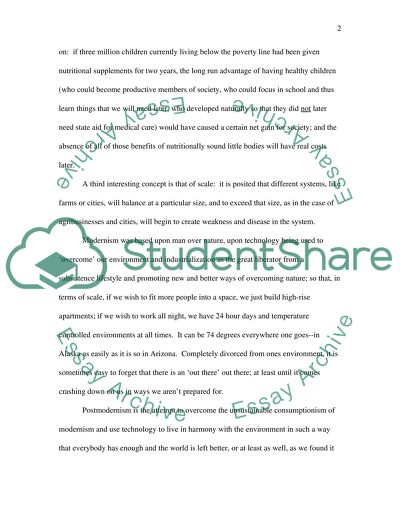Cite this document
(“Ecological Literacy: Education and the Transition to a Postmodern Essay”, n.d.)
Retrieved from https://studentshare.org/miscellaneous/1525116-ecological-literacy-education-and-the-transition-to-a-postmodern-world-by-david-orr
Retrieved from https://studentshare.org/miscellaneous/1525116-ecological-literacy-education-and-the-transition-to-a-postmodern-world-by-david-orr
(Ecological Literacy: Education and the Transition to a Postmodern Essay)
https://studentshare.org/miscellaneous/1525116-ecological-literacy-education-and-the-transition-to-a-postmodern-world-by-david-orr.
https://studentshare.org/miscellaneous/1525116-ecological-literacy-education-and-the-transition-to-a-postmodern-world-by-david-orr.
“Ecological Literacy: Education and the Transition to a Postmodern Essay”, n.d. https://studentshare.org/miscellaneous/1525116-ecological-literacy-education-and-the-transition-to-a-postmodern-world-by-david-orr.


